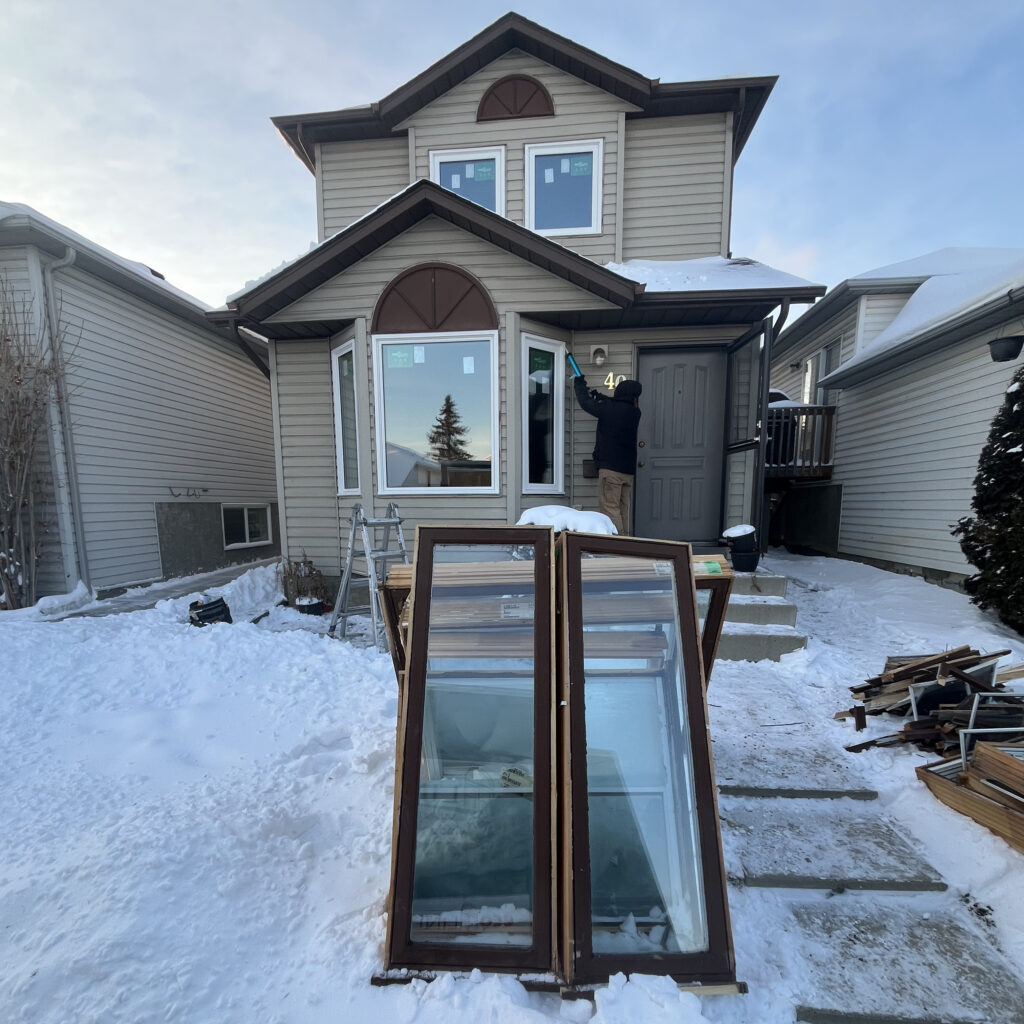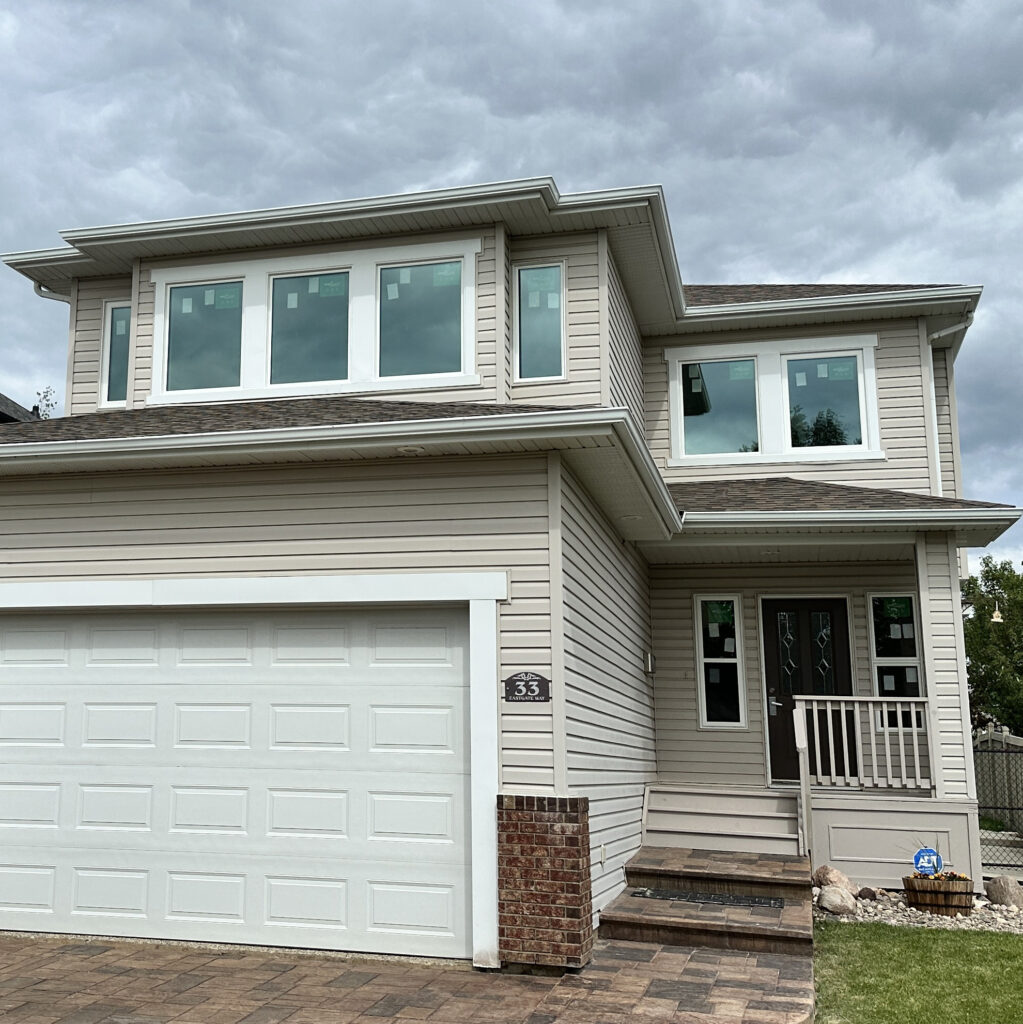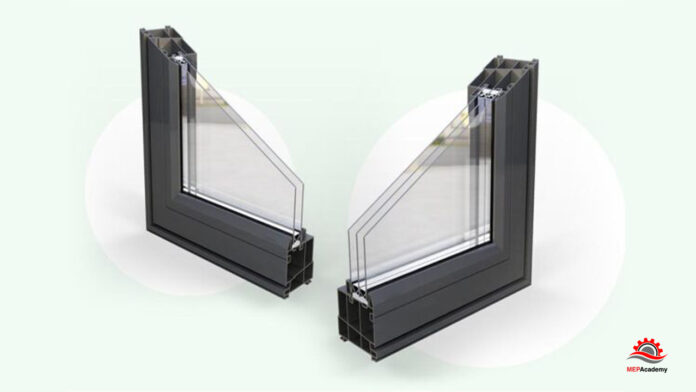Maximizing HVAC Efficiency with Energy-Efficient Windows: A Guide for Modern Homes
Energy efficiency is no longer just a buzzword in North America; it’s a key vector for all modern buildings aiming for net zero and sustainability. HVAC systems are central to achieving indoor comfort, but they can only perform at their best when paired with a well-insulated building envelope.
One of the most overlooked elements in this equation is home windows. Did you know that up to 30% of your heating energy can be lost through inefficient windows? This forces HVAC systems to work overtime, leading to skyrocketing costs and unnecessary wear and tear.
Upgrading to energy-efficient windows isn’t just about aesthetics or noise reduction—it’s about creating a system that works in harmony with your HVAC setup. Let’s explore how this combination can maximize efficiency and savings.
How Are Windows and HVAC Efficiency Connected?
Windows and HVAC systems are like two sides of the same coin when it comes to energy efficiency. Poorly insulated windows allow uncontrolled heat exchange, which disrupts indoor temperature stability. This increases the workload on your HVAC system, causing it to use more energy to compensate.

For example, if your home still has single-pane windows, heat escapes rapidly, especially in winter, forcing the furnace to run longer. In contrast, sunlight and heat pour in during summer, driving up air conditioning usage. Studies show that energy-efficient windows can reduce HVAC energy consumption by up to 25%, thanks to features like Low-E coatings and triple-pane glass.
The latter is especially beneficial for older homes built in the late 70s-80s due to the significantly decreased U-Value (the indicator showing how well the window insulates).
For example, the U-value of single-pane windows often revolved around 1 to 1.2, which basically means no insulation. On the other hand, Energy Star-rated triple-pane windows come with 0.2 to 0.25 U-value, providing 55% more energy efficiency than standard double-pane windows and many times better results than single-glazed units.
When windows prevent heat loss or gain, your HVAC system operates optimally, ensuring long-term performance and savings.
Benefits of Energy-Efficient Windows for HVAC Systems
Investing in energy-efficient windows offers significant advantages for HVAC systems, leading to enhanced performance and cost savings:
- Reduced Energy Consumption: Energy-efficient windows can decrease heating and cooling energy use by 25%–30% by minimizing heat gain and loss.
- Extended HVAC Lifespan: By lessening the workload on HVAC systems, these windows contribute to longer equipment life and reduced maintenance costs.
- Consistent Indoor Comfort: High-performance windows help maintain stable indoor temperatures, eliminating drafts and cold spots for improved occupant comfort.
- Lower Utility Bills: Homeowners can save an average of 12% on their energy bills, amounting to annual savings between $200 and $600, by installing energy-efficient windows.
These benefits make energy-efficient windows a wise investment for optimizing HVAC system performance and achieving long-term energy savings.

What to Look For When Shopping for Energy-Efficient Windows
Choosing the right windows involves more than just picking a style; specific features make all the difference in optimizing HVAC efficiency. When shopping for energy-efficient windows, look for the following:
- Where are ecoline windows manufactured: Buying the windows suited for your local weather conditions is best, and contractors who manufacture locally can better accommodate your needs, home and weather specifics.
- Low-E Coatings: A thin, invisible metallic layer that reflects heat back into the room during winter and blocks solar heat in summer. Low-E windows can reduce energy use by 30%-50%.
- Triple-Pane Glass: Provides superior insulation by adding an extra layer of glass and increasing thermal resistance compared to double-pane windows.
- Gas Fills (Argon or Krypton): Inert gases between the panes reduce heat transfer more effectively than air.
- Insulated Frames: Materials like vinyl prevent heat transfer through the window frame, improving overall efficiency.
- ENERGY STAR Certification: Always choose windows with the ENERGY STAR label to ensure they meet or exceed government energy-efficiency standards.
When to Upgrade Windows to Better Utilize the HVAC Systems
Timing is everything when it comes to upgrading windows alongside your HVAC system. Here are key moments when replacing windows becomes essential:
- During an HVAC System Upgrade: Installing energy-efficient windows before or alongside a new HVAC system ensures optimal performance by minimizing energy waste.
- High Energy Bills: If heating and cooling costs are soaring, inefficient windows might be the culprit. Upgrading can significantly lower your monthly expenses.
- Noticeable Drafts or Hot/Cold Spots: These are clear signs that your windows aren’t insulating properly, forcing your HVAC system to work harder.
- Aging Windows: Older single-pane or poorly insulated windows can’t compete with modern energy-efficient options.
- Renovations or Retrofitting: When remodelling, energy-efficient windows are a smart addition to improving the building envelope.
Upgrading windows at the right time ensures your HVAC system operates efficiently, reduces energy costs, and enhances comfort.
Wrapping Up
Energy efficiency is a team effort, and energy-efficient windows and HVAC systems are key players in achieving it. Upgrading to energy-saving windows reduces the strain on your HVAC system, lowers energy bills, and creates a more comfortable indoor environment.
The benefits aren’t just theoretical—real case studies show up to 30% energy savings, with homeowners enjoying reduced HVAC usage and extended system lifespans. Whether you are planning an HVAC upgrade, renovating your home, or simply looking to cut energy costs, don’t overlook the impact of modern, well-insulated windows.
Pairing energy-efficient windows with a robust HVAC system ensures that your home is comfortable, cost-effective, and environmentally friendly. It’s a step toward a sustainable future and smarter energy use.
“This article was sponsored by Ecoline Windows. All opinions expressed are my own. Sponsored content helps support this blog and allows us to bring you valuable information.”







